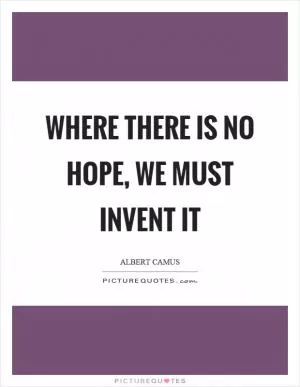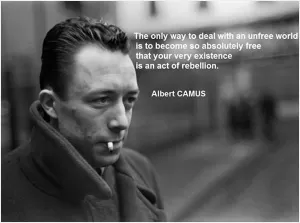There are causes worth dying for, but none worth killing for

There are causes worth dying for, but none worth killing for
Albert Camus, the renowned French philosopher and author, is often associated with the idea that there are causes worth dying for, but none worth killing for. This sentiment reflects Camus' belief in the inherent value of human life and the futility of violence as a means to achieve noble ends.Camus was a staunch advocate for the idea that individuals should strive to live with integrity and authenticity, even in the face of adversity. He believed that true heroism lies in the ability to confront the absurdity of existence with courage and dignity, rather than resorting to violence or aggression. In his famous work, "The Myth of Sisyphus," Camus explores the concept of the absurd and the human struggle to find meaning in a seemingly indifferent universe.
For Camus, the idea that there are causes worth dying for speaks to the importance of standing up for one's beliefs and values, even in the face of overwhelming odds. He believed that individuals should be willing to make sacrifices for what they believe in, but that these sacrifices should never involve taking the life of another human being. Camus was a vocal critic of war and violence, and he believed that the ends could never justify the means when it came to taking another person's life.












 Friendship Quotes
Friendship Quotes Love Quotes
Love Quotes Life Quotes
Life Quotes Funny Quotes
Funny Quotes Motivational Quotes
Motivational Quotes Inspirational Quotes
Inspirational Quotes